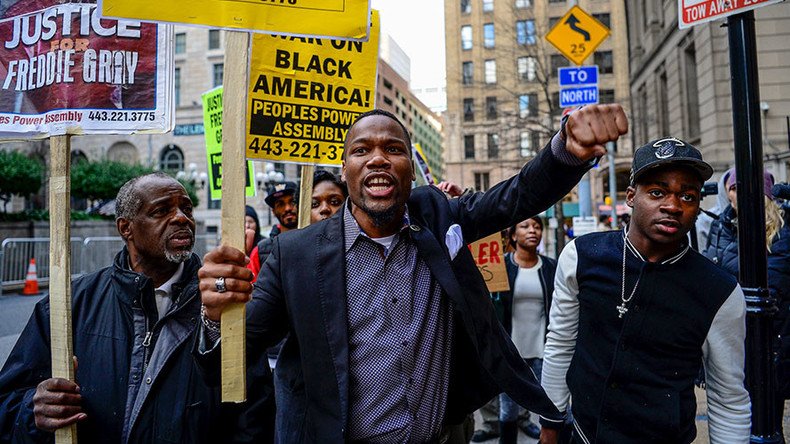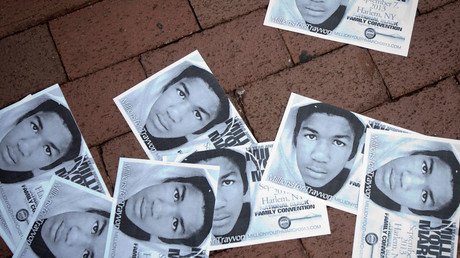Rise of New Black Radical: ‘Blacks should be able to define destiny separately from white supremacy’

Black people in the US have again woken up to the belief that America is racist and that they need to think more radically about how to change their lives as opposed to waiting for another African-American president, says Adam Jackson, CEO of Leaders of a Beautiful Struggle.
In the latest episode of RT's On Contact program, host Chris Hedges looks at the rise of new Black radicals across the US.
The phenomenon was spurred by the 2013 acquittal of George Zimmerman in the fatal shooting of an unarmed black teenager Trayvon Martin.
From coast to coast, people began speaking out against a system which they say guarantees poverty and a militarized police force, but not justice.
This generation of black radicals are unwilling to collaborate with the structures of the corporate state, says Hedges.
They understand the farce of electoral politics, the judicial system and legislative reform. They distrust the corporate press and denounce established black leaders from Barack Obama and Jesse Jackson to Al Sharpton and Michael Eric Dyson as sellouts, according to Hedges.
They argue that real change will only come from the streets through acts of mass civil disobedience, he says.
To discuss the matter further, Hedges was joined by Jackson, the CEO of Leaders of a Beautiful Struggle, a grassroots group working to improve the lives of African Americans in his home city of Baltimore.
“Baltimore has been a really interesting place for the past couple of years. We can trace that back to the Baltimore uprising in terms of people’s new consciousness around what’s happening in the city. Even though in 2015 we had a mayor [Stephanie Rawlings-Blake], who wasn’t really accountable to community and City Council wasn’t really focused on community," Jackson said.
"Since then we’ve elected a new mayor, and we’ve also elected a new City Council half of which has been replaced completely. What I think has happened since 2015 and since the subsequent election is that we have new possibilities for how Baltimore can institute transformational policies laws, etc. But the issue is how the grassroots organizations, institutions, and leaders hold them accountable directly and not capitulate to the Democratic Party and judicial mainstream institutions. That is typically what happens, people kind of go back into the fold in terms of going back to being accountable to these large mainstream institutions as opposed to flipping it and being accountable to community,” Jackson said.
Asked it this transformation has happened in Baltimore among the Black political elite, he said “It depends on who you talk to.”
“The thing is people sometimes see in a linear fashion – it goes up or down; left or right. You’ve got to build the necessary capacity at a community level, so that there is accountability to black working class folks in Baltimore.”
Jackson said people are becoming more aware and getting more involved, “What we’ve seen is that people are more willing to talk about how resources are distributed in Baltimore, where policies and laws are in place that are racist and affect black folks.”
“I think they are more willing to have these conversations. But now we have to figure out how to build capacity at the grassroots level, so that we’re not talking about that in 10 years or so,” Jackson said.
Commenting on his long-term goals, the activist said that his idea of winning would be Black people being able to define their own destiny with their own organizations and infrastructure.
“And I think doing it separately of a racist society or racist government dictating to us how Black people should live, or social services organizations of philanthropic organizations that are not owned by us; being able to govern our own affairs on our own terms, separately of white supremacy,” he said.
He recalled that at the end of George Bush’s presidency there was “a nationalist wave, a separatist wave for Black folks”.
“Then we had eight years of post-racial fantasy world of Barack Obama… Now we are in the first stages of Trump’s presidency... Now Black folks in general have woken up to the idea again that America is racist, has been racist and we need to think more radically about how we are going to change our own lives as opposed to waiting for another Black president,” Jackson said.
The statements, views and opinions expressed in this column are solely those of the author and do not necessarily represent those of RT.













